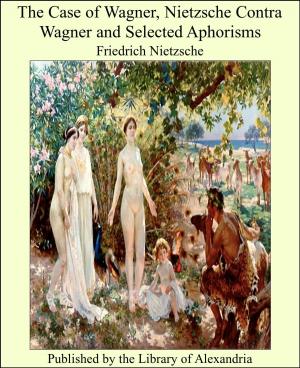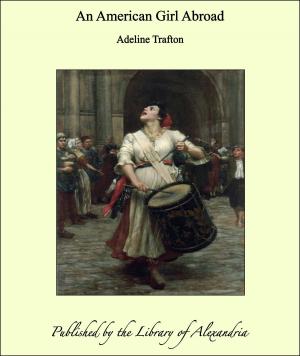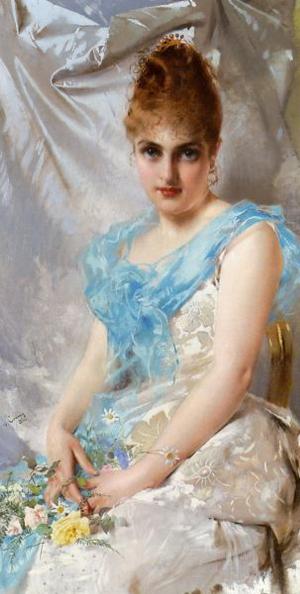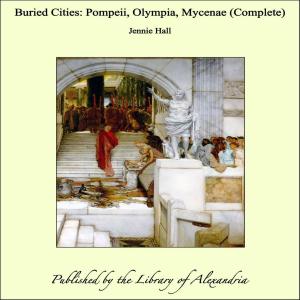Forest Days: A Romance of Old Times
Nonfiction, Religion & Spirituality, New Age, History, Fiction & Literature| Author: | George Payne Rainsford James | ISBN: | 9781465607263 |
| Publisher: | Library of Alexandria | Publication: | March 8, 2015 |
| Imprint: | Language: | English |
| Author: | George Payne Rainsford James |
| ISBN: | 9781465607263 |
| Publisher: | Library of Alexandria |
| Publication: | March 8, 2015 |
| Imprint: | |
| Language: | English |
Merry England!--Oh, merry England! What a difference has there always been between thee and every other land! What a cheerfulness there seems to hang about thy very name! What yeoman-like hilarity is there in all the thoughts of the past! What a spirit of sylvan cheer and rustic hardihood in all the tales of thy old times! When England was altogether an agricultural land--when a rude plough produced an abundant harvest, and a thin, but hardy and generous peasantry, devoted themselves totally to the cultivation of the earth,--when wide forests waved their green boughs over many of the richest manufacturing districts of Great Britain, and the lair of the fawn and the burrow of the coney were found, where now appear the fabric and the mill, there stood, in a small town, or rather, I should call it, village, some fourteen miles from Pontefract, a neat little inn, well known to all the wayfarers on the road as a comfortable resting place, where they could dine on their journey to or from the larger city. The house was constructed of wood, and was but of two stories; but let it not be supposed on that account that it was devoid of ornament, for manifold were the quaint carvings and rude pieces of sculpture with which it was decorated, and not small had been the pains which had been bestowed upon mouldings and cornices, and lintels and door-posts by the hand of more than one laborious artisan. Indeed, altogether, it was a very elaborate piece of work, and had probably been originally built for other purposes than that which it now served; for many were the changes which had taken place in that part of the country, as well as over the rest of England, between the days I speak of, and those of a century before. Any one who examined the house closely, would have seen that it must have been constructed before the year 1180, for there was very strong proof, in the forms of the windows, and the cutting across of several of the beams which traversed the front, that at the period of its erection the use of glazed casements in private houses was not known. At the time I speak of, however, glass had become plentiful in England, and, though cottages were seldom ornamented with anything like a lattice, yet no house with the rank and dignity of an inn, where travellers might stop in rainy and boisterous weather, was now without windows, formed of manifold small lozenge-shaped pieces of glass, like those still frequently employed in churches, only of a smaller size. The inn was a gay-looking, cheerful place, either in fine weather or in foul; for, as there are some men who, clothe them as you will, have a distinguished and graceful air, so are there some dwellings which look sunshiny and bright, let the aspect of the sky be what it will. The upper story of the house projected beyond the lower, and formed of itself a sort of portico, giving a shelter to two long benches placed beneath it, either from the heat of the summer sun, or the rain of the spring and autumn; and it need not be said that these benches formed the favourite resting place of sundry old men on bright summer evenings; and that many a time, in fine weather, a table would be put out upon the green before the house, the bench offering seats on one side, while settles and stools gave accommodation on the other, to many a merry party round the good roast beef and humming ale.
Merry England!--Oh, merry England! What a difference has there always been between thee and every other land! What a cheerfulness there seems to hang about thy very name! What yeoman-like hilarity is there in all the thoughts of the past! What a spirit of sylvan cheer and rustic hardihood in all the tales of thy old times! When England was altogether an agricultural land--when a rude plough produced an abundant harvest, and a thin, but hardy and generous peasantry, devoted themselves totally to the cultivation of the earth,--when wide forests waved their green boughs over many of the richest manufacturing districts of Great Britain, and the lair of the fawn and the burrow of the coney were found, where now appear the fabric and the mill, there stood, in a small town, or rather, I should call it, village, some fourteen miles from Pontefract, a neat little inn, well known to all the wayfarers on the road as a comfortable resting place, where they could dine on their journey to or from the larger city. The house was constructed of wood, and was but of two stories; but let it not be supposed on that account that it was devoid of ornament, for manifold were the quaint carvings and rude pieces of sculpture with which it was decorated, and not small had been the pains which had been bestowed upon mouldings and cornices, and lintels and door-posts by the hand of more than one laborious artisan. Indeed, altogether, it was a very elaborate piece of work, and had probably been originally built for other purposes than that which it now served; for many were the changes which had taken place in that part of the country, as well as over the rest of England, between the days I speak of, and those of a century before. Any one who examined the house closely, would have seen that it must have been constructed before the year 1180, for there was very strong proof, in the forms of the windows, and the cutting across of several of the beams which traversed the front, that at the period of its erection the use of glazed casements in private houses was not known. At the time I speak of, however, glass had become plentiful in England, and, though cottages were seldom ornamented with anything like a lattice, yet no house with the rank and dignity of an inn, where travellers might stop in rainy and boisterous weather, was now without windows, formed of manifold small lozenge-shaped pieces of glass, like those still frequently employed in churches, only of a smaller size. The inn was a gay-looking, cheerful place, either in fine weather or in foul; for, as there are some men who, clothe them as you will, have a distinguished and graceful air, so are there some dwellings which look sunshiny and bright, let the aspect of the sky be what it will. The upper story of the house projected beyond the lower, and formed of itself a sort of portico, giving a shelter to two long benches placed beneath it, either from the heat of the summer sun, or the rain of the spring and autumn; and it need not be said that these benches formed the favourite resting place of sundry old men on bright summer evenings; and that many a time, in fine weather, a table would be put out upon the green before the house, the bench offering seats on one side, while settles and stools gave accommodation on the other, to many a merry party round the good roast beef and humming ale.















